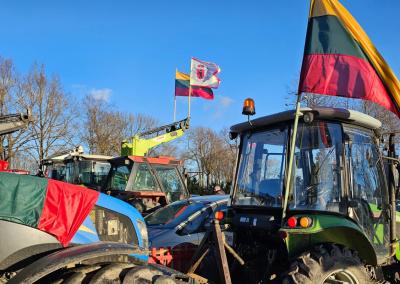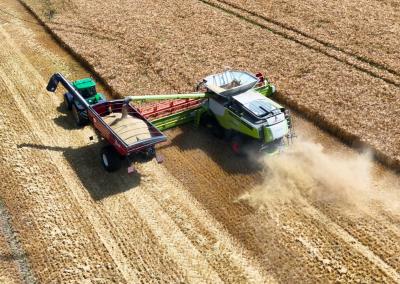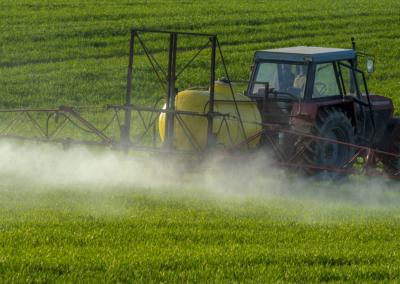Assessed tax reform: We will have more farmers in Lithuania
With the adoption of the tax reform by the Parliament, which provides for a preferential personal income tax (PIT) for persons engaged in agriculture, Vytautas Šilinskas, director of the Investors‘ Forum“, sees a risk that this clause will not be used by farmers only
.„One of the aims of the reform was to reduce the number of exemptions, but it has now led to another exemption. Here again it is not clear what the aim is and what the consequences will be," Šilinskas told Žinių radios on Monday.
The way the relief is worded, the business representative said, it provides for lower taxes not on agricultural income, but simply on those who call themselves farmers. According to Mr Šilinskas, this may leave room for people engaged in any activity to pay lower taxes.
„As far as I could see, the tax exemption is not made for agricultural income, it is made for farmers, which means that it will pay for everyone to become a farmer. If I understand correctly, the exemption is for the farmer and then you can do whatever you want, but you are a farmer and you are taxed less. We will have more farmers in Lithuania, I bet on it," said the director of the „Investors‘ Forum“.
ELTA recalls that the Seimas agreed to tax personal income from next year at three progressive rates of 20, 25 and 32 per cent.
Farmers under the preferential tax regime will be taxed at a personal income tax (PIT) rate of 15% or 20%, depending on whether the farmer's annual income is below or above 60 average wages (approximately €138,000).
According to the government's draft, annual taxable income up to 36 average wages (Wages and salaries, next year €82.9 thousand) will be taxed at 20%, from 36 to 60 Wages and salaries (next year €82.9 thousand) at 25%, from 36 to 60 Wages and salaries, next year €138.2 thousand, at 32%.
The tax changes will come into force from 2026.














































































































